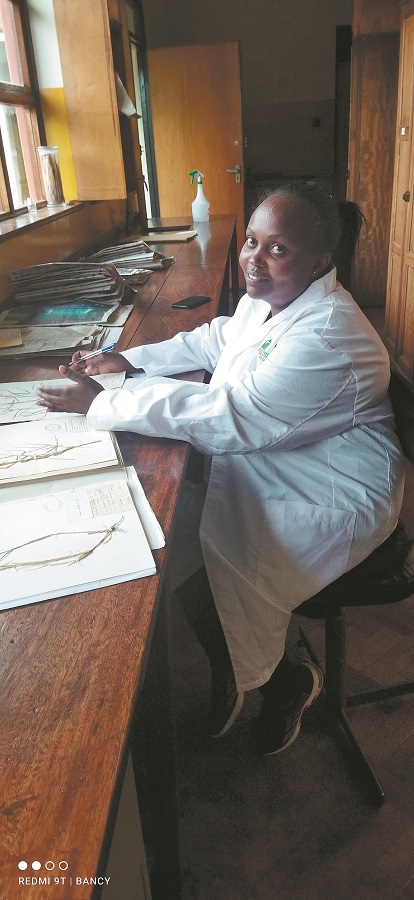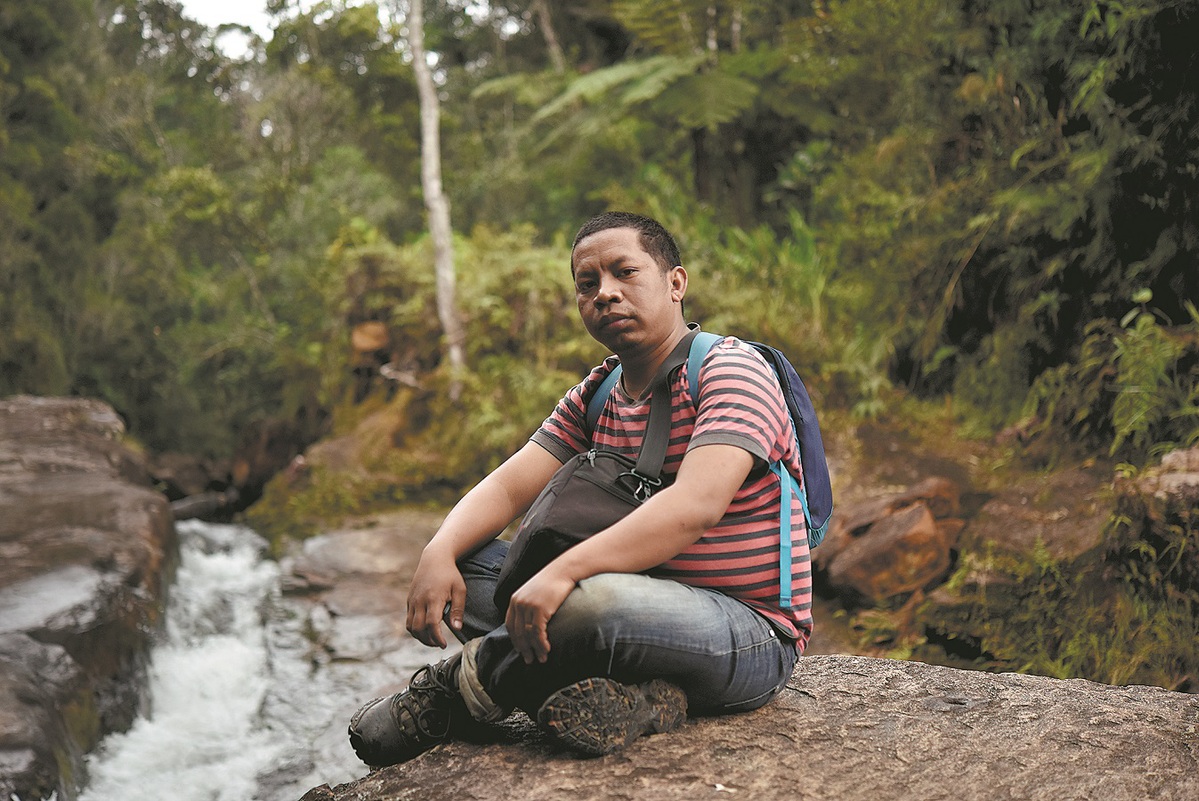(China Daily) African Scholars Pursue Research at Wuhan Center
2024-09-24

Bancy Gichovi
An increasing number of African scholars have pursued their botanical research with the backing of Chinese institutions in recent years.
Bancy Gichovi, a master's student at the Sino-Africa Joint Research Center in Wuhan, Hubei province, is among them.
Her interest in studying in China began in 2015 during her undergraduate years at Jomo Kenyatta University of Agriculture and Technology, the headquarters of the Sino-African research center in Africa, where she was attracted to the enduring relationship between China and Kenya.
In 2019, she took advantage of the opportunity by applying for a scholarship to delve deeper into plant molecular biology at the research center.
Last November, a study co-authored by Gichovi and six Chinese researchers was published in Plant Physiology and Biochemistry. "I'm truly thankful for my supervisor and fellow students at the research center," Gichovi said. "Dealing with molecular aspects can be quite challenging, but whenever I seek their advice, they are always willing to help."
The Sino-Africa Joint Research Center serves as a melting pot of talent, with over 300 students from 14 African countries collaborating on botanical, animal science and microbiological research initiatives.
The academic program at the center involves master's students spending two semesters at the University of the Chinese Academy of Sciences in Beijing, while PhD students complete a semester before advancing their research pursuits.

Guy Eric Onyalalaina
Guy Eric Onyalalaina, a PhD candidate at the center, began his academic journey in China through a prestigious CAS scholarship, which covers his tuition fees and living expenses.
His exposure to Chinese botanical research during a project in Madagascar in 2017 and 2018 served as a pivotal moment that sparked his interest in Chinese academia.
"I was initially intimidated, concerned about cultural barriers," Onyalalaina said. "However, within two or three days, we naturally communicated, focusing together on our project."
Onyalalaina soon found himself seamlessly communicating and collaborating with Chinese researchers on shared projects. His dedication and research acumen caught the eye of Hu Guangwan, a researcher at Wuhan Botanical Garden, leading to an agreement for Onyalalaina to join Hu's PhD program.
"I chose my PhD project due to the urgent need to assess the state of natural resources, particularly in the capital city of Madagascar, where biodiversity is rapidly degrading," Onyalalaina said.
His research on ethnobotany and ethnopharmacology has led him to explore the medicinal properties of plants with anti-inflammatory attributes in Tsiazompaniry, a forest in Antananarivo, capital of Madagascar, reflecting his commitment to addressing pressing environmental challenges.
The cultural exchange experiences, language learning and culinary delights in China have left a lasting impression on both Gichovi and Onyalalaina, leaving them with a deep appreciation for Chinese cuisine and traditions. Onyalalaina's wife and son moved to China in December, with his wife pursuing a scholarship in law, and their 4-yearold boy attending a local kindergarten.
"It's a Chinese kindergarten, and my son gets along well," Onyalalaina said.
Despite their research schedules, Onyalalaina and his family find joy in exploring Wuhan's parks and walking along the banks of the Yangtze River.
"We love everything about China-the culture, the food, the technology," he said.
Discussing his previous impression of China, he said that, influenced by media and stereotypes, he used to think that China was a reclusive country. It turned out to be a place where they can live confidently and comfortably.
"Most importantly, we feel safe here," Gichovi added.
Both scholars expressed their willingness to continue living in China if given suitable opportunities.
"I haven't been back to Beijing since my first semester. I would love to visit again," Onyalalaina said. Apart from the well-known cities such as Shanghai and Shenzhen, he also expressed a keen interest in traveling to Yiwu, "because it's the supermarket of the world". (China Daily)